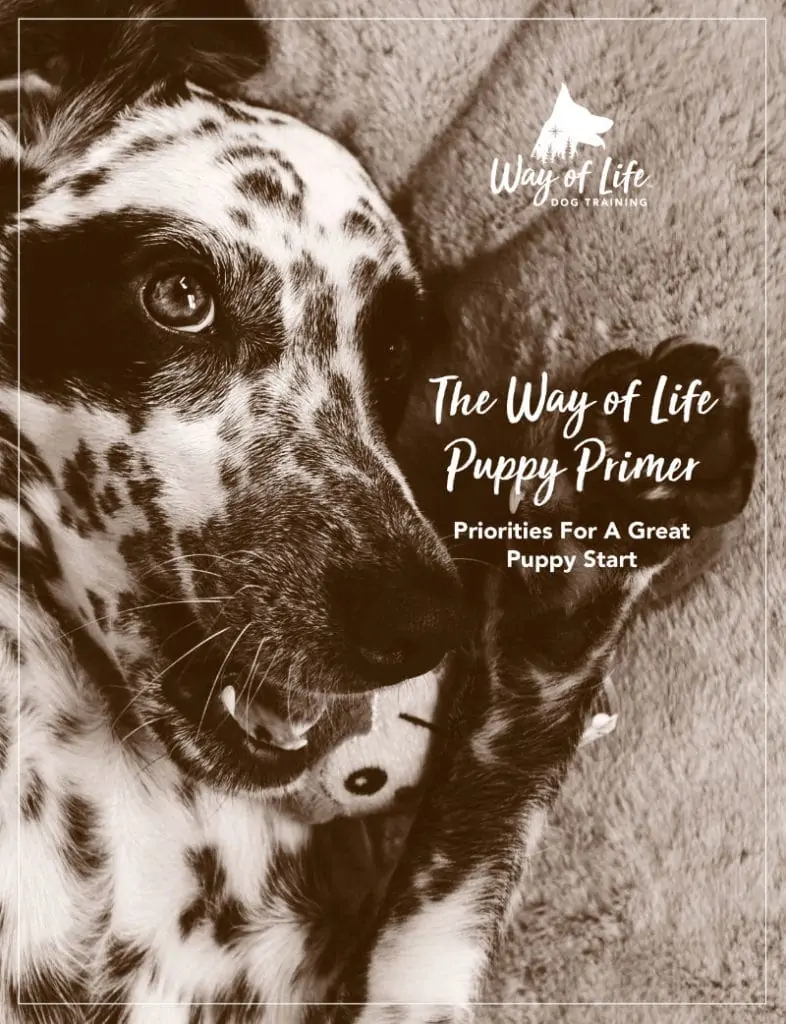Updates & Upcoming Events ~ Book Pub Date ~ Thinking in Stages ~ More on Reactivity ~ Integrating Spaniels ~ Skylar the Mini Aussie

Do you have a new pup?
Download this free Puppy Primer PDF document to get started on the right foundations with your new puppy.
Plus, you’ll get the Way of Life™ Newsletter – offering tips, inspiration, recommendations and more!
Download Free Puppy PrimerPlus, you’ll get the Way of Life™ Newsletter – offering tips, inspiration, recommendations and more!
